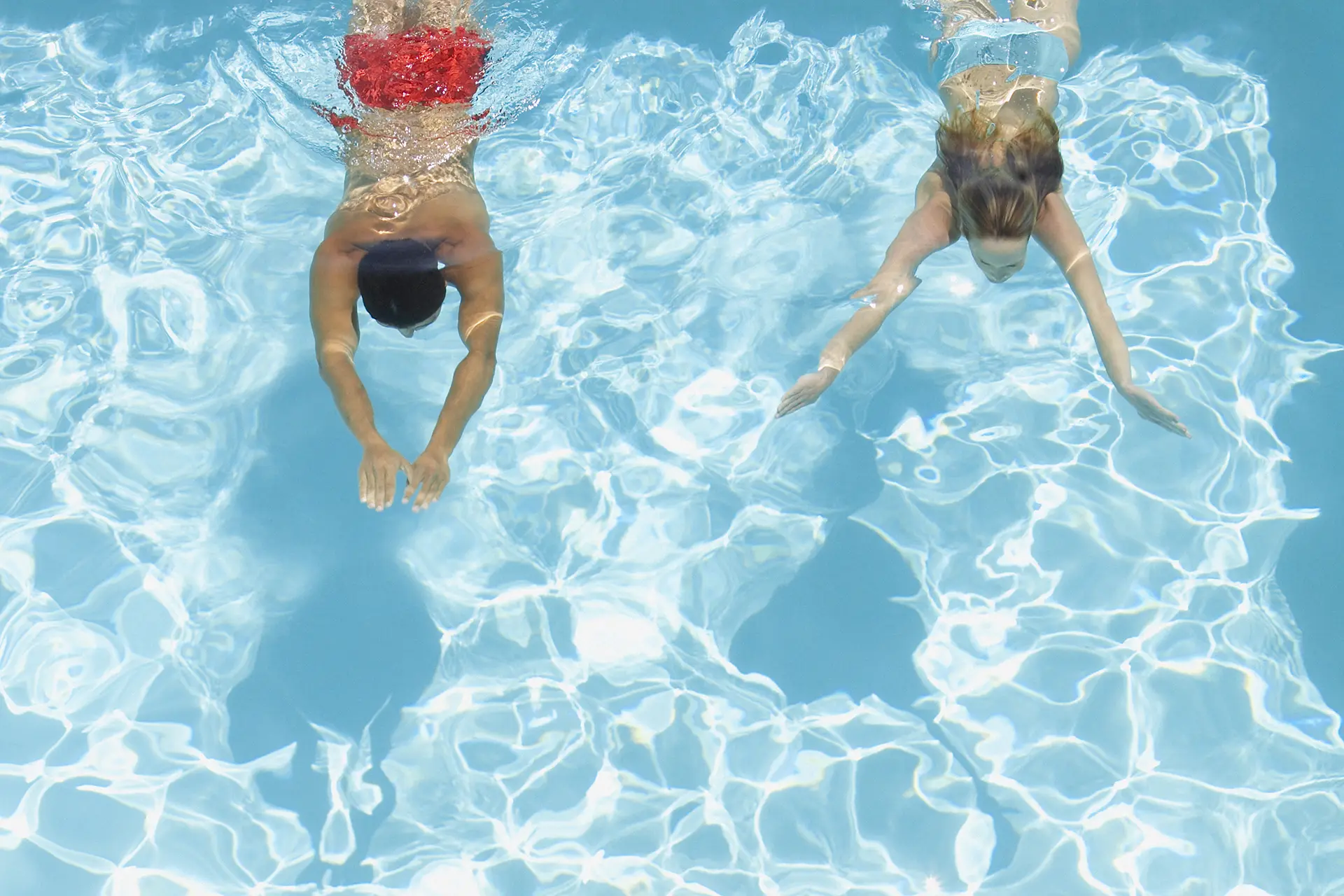
What’s The Best Time to Swim?
Introduction
Have you ever wondered if there’s a perfect time of day to swim? Whether you’re swimming for fitness, relaxation, or simply to cool off, the timing of your swim can significantly impact your experience.
Surprisingly, swimming for just 30 minutes can burn nearly 250 calories, making it an excellent workout choice. But beyond fitness, choosing the best time to swim can enhance your performance, enjoyment, and even safety. Imagine diving into a tranquil pool at sunrise, the water cool and refreshing, setting the tone for a productive day. Or perhaps you prefer a moonlit swim, where the water feels like silk under the stars.
Many people assume that midday is the best time to swim since it’s the warmest part of the day. But is that really the case? This guide explores the best time to swim based on various factors, including health benefits, weather conditions, and personal preferences. By the end, you’ll have a clear idea of when to dive in for the ultimate swimming experience. If you’ve ever asked yourself, “What’s the best time to swim?”, you’re in the right place.
Factors to Consider
The beset time to swim depends on several factors, including weather conditions, your personal schedule, and your swimming goals. Let’s break them down.
Weather Conditions
- Morning: Cooler temperatures and minimal sun exposure make early swims refreshing, but the water can feel chilly.
- Midday: The sun has warmed the water, making it more comfortable, but UV exposure is at its peak.
- Evening/Night: The water retains some warmth from the day, offering a relaxing experience, but reduced visibility can be a concern.
Personal Schedule
- Your daily routine plays a significant role in determining the best time to swim.
- If mornings are hectic, an evening swim might be more practical.
- If you prefer an energetic start to your day, morning swimming could be ideal.
Swimming Goals
- If fitness is your priority, morning swimming can kickstart your metabolism.
- If relaxation is the goal, evening or night swimming may be the best fit.
- If you enjoy social interaction, midday or evening swims when public pools are more populated might be preferable.
Now, let’s explore the pros and cons of swimming at different times of the day.
Morning Swimming: Pros and Cons
Benefits of Morning Swimming
- Peaceful Ambiance – Fewer people in public pools or open waters create a serene, distraction-free environment.
- Lower Sunburn Risk – The sun’s intensity is lower in the morning, reducing the risk of UV damage.
- Energizing Start to the Day – Swimming in the morning can boost metabolism, improve mood, and set a productive tone for the rest of the day.
Drawbacks of Morning Swimming
- Cooler Water Temperatures – Outdoor pools and natural bodies of water can be colder in the morning, making the first plunge a bit uncomfortable.
- Reduced Visibility – Fog or low light conditions may make swimming less ideal, particularly in open water.
- Grogginess – Some people may struggle with energy levels early in the morning, making it harder to get started.
Midday Swimming: Pros and Cons
Benefits of Midday Swimming
- Warmer Water – The sun has had time to heat the water, making it more comfortable to swim in.
- Efficient Use of Lunch Breaks – If you have a busy schedule, a midday swim can be a great way to fit in exercise without disrupting your routine.
Drawbacks of Midday Swimming
- Increased Risk of Sunburn – UV exposure is at its peak, requiring sunscreen and protective gear to prevent sun damage.
- Overheating – Higher temperatures can lead to dehydration and fatigue, making it essential to stay hydrated.
Evening Swimming: Pros and Cons
Benefits of Evening Swimming
- Relaxation After Work – Swimming in the evening can help reduce stress and unwind after a long day.
- Less Crowded Pools – Many people have finished their workouts, leading to a quieter and more enjoyable swimming experience.
Drawbacks of Evening Swimming
- Reduced Visibility – As the sun sets, lighting conditions can make swimming more challenging, especially in open water.
- Potential Sleep Disruption – Some individuals may feel too energized after an evening swim, making it harder to fall asleep.
Night Swimming: Appeal and Safety Considerations
The Appeal of Night Swimming
- Romantic Atmosphere – A peaceful, moonlit swim can be a unique and enjoyable experience.
- UV-Free Environment – No risk of sunburn, making it a skin-friendly option.
- Muscle Relaxation – Helps loosen muscles and prepare the body for a restful sleep.
Safety Considerations
- Proper Lighting – Ensure the swimming area is well-lit to prevent accidents.
- Swim with a Companion – Never swim alone at night to ensure safety in case of an emergency.
Choosing the Best Time to Swim for You
The best time to swim ultimately depends on your personal goals, schedule, and preferences. Here are some tips to help you decide:
- If you want an energizing start to your day, try morning swimming.
- If you prefer social interaction or a midday workout, afternoon swimming might be the best choice.
- If you need a stress-reliever after work, evening swimming is a great option.
- If you love the tranquility of night swimming, ensure you take the necessary safety precautions.
Try experimenting with different times to see which one feels best for you.
Conclusion
There’s no single best time to swim—it all depends on your lifestyle and needs. Whether you prefer the calm of a morning swim, the warmth of midday waters, or the relaxation of an evening dip, the key is to find what works best for you.
By following this guide, you can make an informed decision about when to take the plunge, ensuring a more enjoyable and beneficial swimming experience. Looking to create the perfect backyard pool for swimming at any time of day? Got a question? Contact us for expert advice. Happy swimming!


